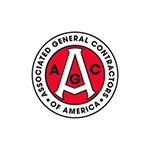A Definitive Guide to Construction Project Delays (and Their Causes)
What you need to know about the top three types of construction delays and their causes.

Construction Project Delays Are on the Rise
Project delays have always been a problem in the construction industry, but they’ve become more prevalent since the pandemic started — and more costly.
“When surveying more than 40,000 construction project managers, Project Management Institute (PMI) found that 72% of participants experience project delays always or often, 70% experience scope creep always or often, and nearly three-quarters (73%) reported projects end over budget,” Brantlee Underhill, the managing director, North America, of PMI, explained.
Since this industry problem is so widespread and has so many adverse impacts on construction companies, we reached out to industry experts to better understand the different types and what factors are currently causing the most delays in construction projects. Here’s what we found.
Quick Chart: Construction Delay Types & Causes
Here’s a chart breaking down the differences between the types of delays and some of the main causes:
Type of Delay | /////What Is It? | /////Causes | /////Who’s Responsible |
|---|---|---|---|
Excusable | Delays caused by any unforeseeable circumstance a team or leader can’t control or predict. |
|
|
Inexcusable | Delays that are the contractor’s responsibility or the result of actions of someone the contractor is responsible for (i.e., subcontractors). |
|
|
Concurrent | Combination of two or more independent clauses of delay during the same time period (excusable and/or inexcusable). |
|
|

What Are the 3 Different Types of Construction Delays?
Construction delays fall into one of three classifications in legal terms:
- Excusable delays
- Inexcusable delays
- Concurrent delays
Excusable Delays
“Generally, excusable construction project delays are caused by any unforeseeable circumstance that a team or leader cannot control or predict,” Underhill of PMI said.
Excusable delays are usually covered by a force majeure clause. According to the Legal Information Institute at Cornell Law School, a force majeure “is a provision in a contract that frees both parties from obligation if an extraordinary event directly prevents one or both parties from performing.” Force majeure clauses ensure that general contractors and other parties in the contract are not liable for events outside their control and their negative consequences.
“I think of excusable delays as being, as a general rule, in two categories,” said Director Eric Travers from the law firm Kegler Brown Hill + Ritter.
The two categories are:
1. Delays That Are Not Within the Control of Either Party
These include delays due to circumstances like bad weather, war or government actions. Neither the owner nor the contractor is at fault — or responsible — for this category of delays.

“The usual result of this is that the time for performance is extended, but both parties bear their own delay costs (i.e., the owner does not have to pay the contractor’s increased costs of performance due to the delay, but the contractor does not have to pay the owner’s delay damages or be responsible for liquidated damages).”
2. Delays That Are the Responsibility of the Other Party to the Contract
“For owners in a traditional design-bid-build contract, that would include their own delays in making decisions, errors or omissions by the architect, owner-directed changes and change orders, and unforeseen site conditions,” Travers said. “Unless those risks have been shifted in the contract, a delay there would typically entitle the contractor to additional time and/or money.”
Learn more about the ins and outs of this project delivery method in our guide about design-bid-build.
Inexcusable Delays
“Inexcusable delays apply to delays that are [the contractor’s] responsibility (or the result of the actions of someone [the contractor is] responsible for),” Travers explained. “For contractors, inexcusable delays would be their (or their subcontractor or suppliers’) failure to perform timely (provided there is not an excusable reason for that failure).”
If a general contractor is considered at fault for an inexcusable delay, they’re responsible for the financial aspects of the project or any damages involved.
“It also includes slower than anticipated progress of their workforce, failure to obtain permits or other clearances (if it was their job to get those in the contract),” Travers continued. “If a delay is inexcusable, then typically the contractor is responsible to do what it can to make up the schedule or risk being assessed (or having passed through to it) delay damages or liquidated damages by the owner.”
Concurrent Delays
A concurrent delay is a combination of two or more independent causes of delay during the same time period. Concurrent delays often occur during complex projects involving multiple parties. These delays can consist of excusable and/or inexcusable delays.
“An example of this situation and how it can be potentially misused was provided by the author of the textbook that I use in my class,” said Craig Townsend, MBA, a part-time lecturer at Clemson University in the Nieri Family Department of Construction Science and Management, as well as a consulting firm owner. “This case illustrated that the contractor was performing at a slow rate and falling behind schedule because the contractor didn’t have an adequate workforce on the site.
Townsend continued, “During the middle of the project, the owner issued a major change order. The contractor requested 120 days of time extension due to this change order. In order to prove his point, the contractor presented two schedules: an original (baseline) schedule and an ‘impact schedule.’ After an analysis, this author found that the change order justified only 56 days of delay.
"The rest, that is, 64 days, were an inexcusable delay. The contractor was trying to hide this inexcusable delay behind the owner’s change order,” he concluded.
Like the projects they occur in, litigation involving construction claims with concurrent delays is equally complex. Several factors need to be taken into account — including the contract, the causes themselves and with which methodology the delays are evaluated. Usually, contractors will be given time extensions with concurrent delays, but not delay damages related to the timeline.

Top 10 Causes of Delays in Construction Projects
Now that we’ve touched on the three main types of construction project delays, let’s dive into 10 major causes of these delays in recent years.
Weather
Weather has always been one of the major causes of project delays since its impact can be extensive. Thankfully, because project owners and contractors can’t predict or prevent weather conditions, delays caused by weather are excusable delays.
Weather conditions usually covered by a contract — and defined as force majeure — can include floods, fires, hurricanes, tornadoes, tropical storms, ice storms, snowstorms and heavy rain.
The Pandemic
COVID-19 had a significant impact on the construction industry by causing delays. In fact, depending on who you ask, it could be considered the main cause of project delays in the years immediately following it.
“The entirety of the COVID-19 pandemic has been considered in many circumstances a matter of force majeure and thus an excusable delay,” Thomas L. Rosenberg, J.D., a shareholder from the Construction Practice Group at the law firm Roetzel & Andress, said.
Rosenberg explained that while typical force majeure contract provisions didn’t mention pandemics (or epidemics) before COVID-19, the entire pandemic and its repercussions — including social distancing, business closures and quarantine requirements — were initially considered excusable.
Today, most contracts list pandemics in their force majeure clauses. But this doesn’t always apply to COVID-19-related labor issues now or moving forward.

“Now, however, if individual workers get sick, that would not typically be considered an act of force majeure and excusable. Construction, however, is strictly guided by the contract documents and therefore, it is incumbent upon those engaged in drafting and negotiating contract documents to consider adding provisions to address workplace illness resulting from COVID or other viruses and its impact on the project.”
As a result, it’s prudent to ensure your contracts specify that any staffing issues caused by COVID be defined as excusable.
Governmental Actions
At the height of the pandemic, the construction industry was directly affected by quarantines, lockdowns, temporary business closures and the pausing of non-essential work. Besides being classified as pandemic-related in force majeure clauses, these events were also categorized as government actions, and, therefore, excusable.
Though most of these actions have ceased for now, any subsequent government acts related to COVID would also be considered causes of excusable delays depending on the language in a contract.
Other governmental actions (outside of COVID-19-related ones) which cause excusable delays include trade restrictions, sanctions and embargos. For instance, the war in Ukraine impacted the shipping sector, thus affecting the global supply chain — causing delays as a result.
Actions of Other Parties in the Contract
Delays that occur because the project owner, architect or engineer — the other party in the contract besides the contractor — makes a mistake during, interferes with or changes a project, are also excusable.
Common examples that delay most construction projects include:
- Unforeseen site conditions.
- Change orders from the owner.
- Redesigns of project components.
- Delays in making timely decisions.
- Errors or omissions by the architect (e.g., deficient drawings, specs, etc.)
- When contractors have to wait for the architect to respond to a Request for Information (RFI).
“As construction gets underway, it's not uncommon for the client to request changes to the design. This can cause delays while the new plans are drawn up and approved,” Marc Devisse, the founder of Tri-Town Construction, explained.
Labor Shortages
Though labor shortages were industry concerns before the pandemic, recent events have only made these labor issues worse.
“Labor shortages continue to be a major cause for delays,” said Brian Turmail, the vice president of public affairs and strategic initiatives for The Associated General Contractors (AGC of America, Inc.). “There aren’t enough people for many projects.”
In fact, in February of 2022, the Associated Builders and Contractors (ABC) reported that the construction industry has a workforce shortage of 650,000 new employees on top of normal hiring plans.
“We’ve had jobs get delayed due to our crew not being available when scheduled, which is never a good position to be in,” Kyle Shirley, the owner of Sol Vista Roofing, explained. “This can result from an illness, a delay in another job the day(s) prior, or a simple scheduling error.”
Kurt Grosse, the owner of Realty One Group, recalled some of the issues he’s seen firsthand in Las Vegas caused by labor shortages.

“Prior to 2020, a normal single-family home could be built in 4-5 months from the time of the contract. Now it’s double or more for many builders…. Since I monitor the construction of my clients’ homes, I see what is happening at the jobsites. I can go during the middle of a weekday and see street after street of partially constructed homes, nearly 100 of them, with only a dozen or two work vehicles. Mostly the houses sit in the wind.”
Late Material Shipments & Supply Chain Disruptions
In the past two years, supply chain delays have caused major problems in the construction industry — including project delays.

“The [issue] that has contributed the most [to project delays] has been supply chain backlogs. We anticipate material availability based on conversations we have with our suppliers, and schedule our roofing projects accordingly. But we have had some projects that were delayed because after a customer accepted our bid and we ordered our materials, an additional material shortage delayed our delivery. It's happened multiple times and always wreaks havoc on our job scheduling.”
“It turns out that we are relearning how complicated the supply chain is,” Turmail said. “We have a very interconnected global supply chain that is affected by the war in Ukraine, the coronavirus and other various factors.”
He pointed out an example of how these disruptions directly impacted a project and explained how this affects construction companies more broadly:

“In October, I was out in Houston with a contractor, and the company providing the roofing material they needed couldn’t deliver the material until July. The irony is that we could see the factory that manufactures this particular material from the project; the factory had almost everything they needed, but there was one chemical they needed that they didn’t have that was holding up production.”
“There are supply chain issues that are greatly contributing to delays — key components that are showing up at unpredictable times, quantities and prices. It’s very hard for a contractor to stay on schedule,” Turmail contained. “Contractors pre-plan everything and make schedules of what is expected to be done on each day, and how it stacks up to completing the project. When the sequence gets screws up, this screws up the project.”
So, who’s at fault for these delays? While some supply chain issues could be argued by a law firm to ultimately be caused by a governmental action like an embargo, most are not — and are not covered by a force majeure clause. Because of this, they’re considered inexcusable.
Consequently, receiving materials in time — and having enough — are considered the contractor’s responsibility.
Poor Construction Planning & Construction Management Techniques
When a contractor makes a mistake or doesn’t plan accurately for a project, it’s an inexcusable delay since this was directly in their control. These kinds of mistakes include inaccurate estimates, project plans that don’t have provisions for occurrences like late materials shipments or poorly managing the project itself.
While many causes of delays have been outside of contractors’ control the past few years, mistakes on the job have continued to cause delays — especially since many supply chain disruptions have been caused, or affected by, the pandemic.
Project Mobilization Delays
Failing to mobilize your workers in time or not fully prepping a jobsite, such as not having the site essentials you need (e.g., construction dumpsters, porta-potties and/or fences) — before or at the start of the project — cause inexcusable delays. Similar to the previous delay cause we mentioned, project mobilization issues contributed to delays before the pandemic and continue to cause them.
Not Obtaining Permits
When it’s your job as a contractor to obtain the proper permits or clearances for a project, any delays caused by failing to do so in a timely manner are inexcusable.
“If the necessary permits haven't been obtained, work can’t start on the project. This can often be due to city red tape or other bureaucratic issues,” Devisse of Tri-Town Construction, LLC stated.
The pandemic particularly has contributed to an increase in permit delays.
“The big issue is when the city is delayed [with inspections],” said Ben Gold, the founder of Recommended Home Buyers. “More than several times, we have waited for a few months just for the inspector to come inspect the work and give approval.”
“We’ve seen delays getting inspections and permitting for phases from projects across the industry,” Turmail explained. “When many people in the public sector started working from home, got COVID or couldn’t come in person to do a physical inspection, we started seeing delays. While we’re back to a more normal posture, some inspectors still can’t come on-site and do in-person inspections.”
Dumpster Service Delays
When Dumpsters.com surveyed 300 contractors, 85% of respondents said they lost 3+ hours per month of productivity due to dumpster service delays. If your provider drops off the wrong dumpster size, delivers a damaged bin or has a late delivery or pickup, work often gets held up, causing delays to the overall project.
Like the construction industry, the waste management industry has also been affected by labor shortages and COVID-19, so more contractors have reported delays on their jobs.
Rosenberg explained that these waste management-related delays can be considered excusable or inexcusable, depending on:
- The contract.
- Who’s asserting the claim of the delay.
- The reason for the delayed pickup, delivery or swap-out.
More Jobsite Resources
Now that you’ve got a solid understanding of the main types of project delays and what’s been causing them over the past few years, find out how to prevent project delays with 24 helpful tips. You can also explore some of our other research and insights into the construction industry — including ways to be more profitable.
Expert Contributors

Brian Turmail
Brian is the vice president public affairs and strategic affairs at The AGC of America in Arlington, VA. A senior marketing and communications executive with a combination of crisis communications, strategic development, advisory, management experience — and good humor — Brian has generated broad media and public support for frequently controversial policy and programmatic initiatives.

Craig N. Townsend
Craig is a part-time lecturer at Clemson University in the Nieri Family Department of Construction Science and Management in Clemson, SC. He is also the owner of a consulting firm, Optimal Path Consulting, LLC, which provides planning and scheduling services in the construction industry.

Eric Travers
Eric is a director in the construction law practice group at Kegler Brown Hill + Ritter in Columbus, OH. He works regularly with owners, general contractors and subcontractors on all aspects of construction contract drafting and disputes, including those arising from change order issues, like delay claims, changes, acceleration, damages, changed conditions and more.

Brantlee Underhill
With 25 years of association experience, Brantlee serves as managing director, North America, at Project Management Institute (PMI) in Newton Square, PA. She’s responsible for broadening PMI’s reach and deepening its impact in North America amongst organizations, individuals and communities, empowering people to make their ideas a reality.

Kurt Grosse
As the structural engineering manager for a building component manufacturer, Kurt worked closely with Las Vegas’s largest homebuilders. Subsequently, Kurt became a Nevada Professional Civil Engineer specializing in wood-framed construction. Before becoming a realtor 26 years ago, Kurt owned a successful construction engineering firm in Las Vegas. Now, he uses his skills and knowledge to protect his clients at Realty One Group with his wife, Terri.

Ben Gold
Ben is the founder of Recommended Home Buyers in Philadelphia, PA. He is a developer and investor with over 5 years of experience building new construction (small, single and big multi-family dwellings), remodeling homes and flipping houses.

Thomas L. Rosenberg
Based in Columbus, Ohio, Tom focuses his practice on construction law and civil litigation and leads Roetzel’s Construction Law practice, which has been recognized by US News & World Report as one of the best law firms nationally and regionally for construction and construction litigation from 2012 to 2021. Tom is a Fellow in the American College of Construction Lawyers and serves on its Board of Governors. He is a past Chair of the American Bar Association Forum on Construction Law.

Kyle Shirley
Kyle is the owner of Sol Vista Roofing in Denver, CO. Kyle’s roofing company serves commercial and residential clients in new construction and roof replacements.

Marc Devisse
Marc is the founder of Tri-Town Construction in Fort Meyers, FL. A southwestern Florida native, he established Tri-Town Construction in 2006 at age 22 after graduating from Florida Gulf Coast University. His vision was to create a local construction company that serves communities in Lee and Collier counties with the highest quality work, superior service and insurance expertise.
Other Sources
Adroit. Assessing Concurrent Delays: A Challenging Exercise. (2019, January 28). Retrieved from Adroitprojectconsultants.com
AGC & Autodesk. 2021 Workforce Survey Analysis. (2021, September 2). Retrieved from Agc.org
Taft Stettinius & Hollister LLP. Can Negotiated Terms in Construction Agreements Reduce Uncertainty Surrounding Concurrent Delay? (2020, January 16). Retrieved from Taftlaw.com
Terouhid, Amin. Concurrent Delays: Definitional and Procedural Considerations. (2019, December 9). Retrieved from Americanbar.org
What Do You Think?
What’s been causing the most project delays in your construction jobs? Head over to Twitter, Facebook or LinkedIn,
and use #dumpstersblog to join the conversation.


